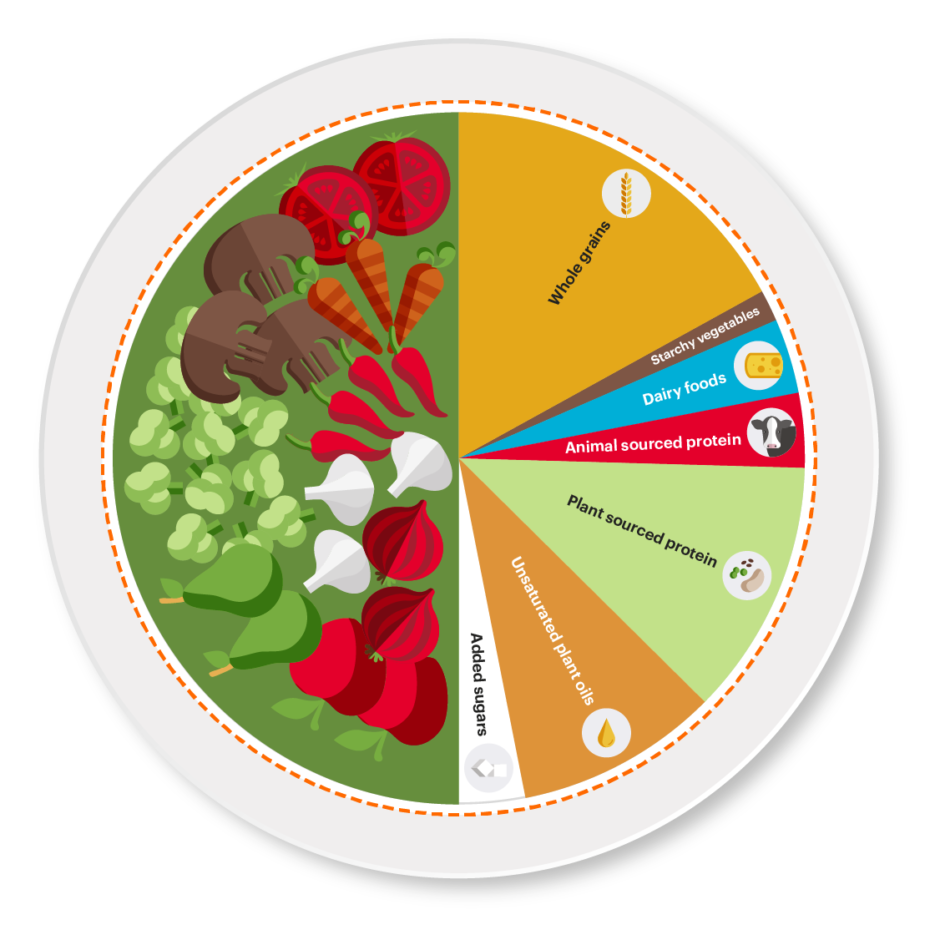Planetary Diet vs. Keto Craze: Debunking Fad Diets and Building a Sustainable Eating Plan for a Long Life
Executive Summary

Navigating the world of diet trends can be confusing, with new fads emerging seemingly every week. This article aims to cut through the noise, focusing on two popular approaches: the Planetary Health Diet and the Ketogenic Diet. We’ll analyze their strengths and weaknesses, highlighting the key differences and ultimately advocating for a sustainable eating plan that prioritizes both personal health and the well-being of the planet. By understanding the science behind each diet and examining their long-term impact, readers can make informed choices that support a healthy, fulfilling, and environmentally conscious lifestyle.

Introduction
The quest for a “perfect” diet is an ongoing pursuit, often fueled by promises of rapid weight loss or enhanced health. While some diets might offer short-term benefits, their long-term sustainability and impact on our overall well-being remain crucial considerations. In this exploration, we’ll dive into two contrasting dietary approaches: the Planetary Health Diet, a plant-based, environmentally conscious model, and the Ketogenic Diet, a high-fat, low-carbohydrate regime. We’ll examine the science behind each, analyzing their effectiveness, potential downsides, and ultimately, their suitability for building a sustainable eating plan for a long and healthy life.
Frequently Asked Questions
What is the Planetary Health Diet?
The Planetary Health Diet is a sustainable eating pattern designed to promote both individual health and environmental sustainability. It emphasizes plant-based foods, while limiting animal products and processed foods.
What is the Ketogenic Diet?
The Ketogenic Diet, or Keto Diet, is a high-fat, low-carbohydrate diet that forces the body to enter a state of ketosis, where it begins to burn fat for energy instead of carbohydrates.
Which diet is better?
The “better” diet depends on individual needs and goals. The Planetary Health Diet is more sustainable for the environment and promotes long-term health, while the Keto Diet can be effective for short-term weight loss but may not be suitable for everyone or sustainable long-term.
The Planetary Health Diet: A Sustainable Approach to Eating
The Planetary Health Diet is a scientific framework that addresses the dual challenges of individual health and environmental sustainability. This approach encourages a shift towards a more plant-based diet, promoting a balanced intake of fruits, vegetables, legumes, whole grains, nuts, and seeds. It also suggests a significant reduction in red meat consumption, while advocating for sustainable sources of seafood and poultry.
Key Features of the Planetary Health Diet:
- Emphasis on Plant-Based Foods: Prioritizes fruits, vegetables, legumes, whole grains, nuts, and seeds, providing essential vitamins, minerals, fiber, and antioxidants.
- Reduced Consumption of Animal Products: Recommends limiting red meat, processed meats, and sugary beverages, contributing to environmental sustainability and reducing the risk of chronic diseases.
- Sustainable Seafood Choices: Encourages responsible consumption of fish and shellfish, minimizing environmental impact and supporting healthy ecosystems.
- Balanced Macronutrient Intake: Provides a balanced intake of carbohydrates, proteins, and fats, promoting overall health and well-being.
- Environmental Sustainability: Aims to reduce greenhouse gas emissions, conserve water resources, and protect biodiversity by minimizing the environmental footprint of food production.
- Long-Term Health Benefits: Promotes a balanced dietary pattern that supports long-term health, reducing the risk of chronic diseases such as heart disease, type 2 diabetes, and certain cancers.
The Ketogenic Diet: A High-Fat, Low-Carb Approach
The Ketogenic Diet or Keto Diet, is a high-fat, low-carbohydrate eating plan that forces the body to enter a state of ketosis. In ketosis, the body begins to burn fat for energy instead of glucose (sugar) derived from carbohydrates. This metabolic shift can lead to weight loss and improvements in blood sugar control.
Key Features of the Ketogenic Diet:
- High Fat Intake: Encourages consumption of healthy fats like avocado oil, olive oil, coconut oil, and fatty fish, providing a significant portion of daily calories.
- Low Carbohydrate Intake: Restricts carbohydrates to a very low level, typically below 50 grams per day.
- Increased Protein Intake: Recommends moderate protein consumption to maintain muscle mass and support satiety.
- Potential Weight Loss: Can lead to rapid weight loss in the short term due to water loss and a reduction in carbohydrate storage.
- Improved Blood Sugar Control: Can be beneficial for managing blood sugar levels in individuals with type 2 diabetes.
- Potential Side Effects: May cause digestive issues, nutrient deficiencies, and a decrease in energy levels, especially during the initial adaptation period.
Comparing the Planetary Health Diet and the Ketogenic Diet
The Planetary Health Diet and the Ketogenic Diet offer distinct approaches to nutrition, catering to different needs and goals. While both can have positive outcomes, understanding their differences is crucial for making informed choices.
Differences in Focus:
- Environmental Impact: The Planetary Health Diet prioritizes sustainability, aiming to minimize the environmental footprint of food production. The Keto Diet, while focusing on health, has a less pronounced focus on environmental impact.
- Macronutrient Distribution: The Planetary Health Diet emphasizes a balanced intake of carbohydrates, proteins, and fats, while the Keto Diet drastically reduces carbohydrates and increases fat intake.
- Food Choices: The Planetary Health Diet encourages a wide variety of plant-based foods, while the Keto Diet focuses on high-fat sources like meat, cheese, and oils.
- Long-Term Sustainability: The Planetary Health Diet promotes a sustainable eating plan that supports long-term health and well-being. The Keto Diet, while effective for short-term weight loss, may not be suitable for everyone or sustainable long-term.
Beyond Fads: Building a Sustainable Eating Plan for a Long Life
Choosing a dietary approach that aligns with both personal health and environmental sustainability is crucial for a long and fulfilling life. While fad diets might promise quick results, they often lack the scientific foundation and long-term benefits necessary for lasting health.
Building a Sustainable Eating Plan:
- Prioritize Plant-Based Foods: Aim to consume a wide variety of fruits, vegetables, legumes, whole grains, nuts, and seeds.
- Limit Processed Foods: Minimize consumption of processed meats, sugary drinks, and refined grains.
- Choose Sustainable Sources: Opt for sustainably sourced seafood, poultry, and eggs, promoting environmental conservation and ethical practices.
- Cook at Home More Often: Prepare meals at home to control ingredients and portion sizes, promoting healthy and mindful eating habits.
- Listen to Your Body: Pay attention to your hunger cues and satiety levels, making mindful choices that fuel your body and support overall well-being.

Conclusion
The journey towards optimal health involves making informed choices that support both our bodies and the environment. While fad diets might offer short-term gains, building a sustainable eating plan that prioritizes nutrient-rich foods, responsible consumption, and mindful eating habits is crucial for long-term well-being.
By understanding the science behind different dietary approaches, like the Planetary Health Diet and the Ketogenic Diet, individuals can make informed choices that align with their health goals, values, and environmental consciousness. Ultimately, the key to a healthy and fulfilling life lies in finding a dietary pattern that is both sustainable and enjoyable, fostering a mindful connection between food, body, and the planet.

